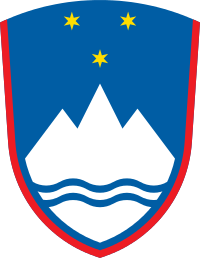The Slovene lands were part of the Austro-Hungarian Empire until the latter's dissolution at the end of World War I. In 1918, the Slovenes joined the Serbs and Croats in forming a new multinational state, which was named Yugoslavia in 1929. After World War II, Slovenia became a republic of the renewed Yugoslavia, which though communist, distanced itself from Moscow's rule. Dissatisfied with the exercise of power by the majority Serbs, the Slovenes succeeded in establishing their independence in 1991 after a short 10-day war. Historical ties to Western Europe, a strong economy, and a stable democracy have assisted in Slovenia's transformation to a modern state. Slovenia acceded to both NATO and the EU in the spring of 2004; it joined the euro zone and the Schengen zone in 2007.
Slovenia is a parliamentary republic.
Source: CIA World Factbook
Members:
Resources
Displaying 6 - 10 of 26Regulation on the incineration of waste.
This Regulation of the Government of the Republic of Slovenia, which is composed of 27 articles and one Annex, establishes measures, prohibitions and other conditions for co-firing and waste incineration and the conditions and measures of operational co-incineration of waste and incineration of waste. The aim of this Regulation is to prevent or reduce negative effects on the environment, particularly emissions into air, soil, surface water, as well as the resulting risks to human health which might arise from incineration and coincineration of waste.
Regulation on the use of sewage sludge in agriculture.
This Regulation of the Government of the Republic of Slovenia, which is composed of 19 articles and two Annexes, establishes provisions concerning the use of sewage sludge as a fertilizer in agriculture, and in particular, prohibitions and restrictions on such use and details on reporting to the European Commission. The sludge from sewage treatment plants, small sewage treatment plants or common treatment facilities may be used in agriculture as a fertilizer only in accordance with this regulation. This Regulation is divided into the following Sections: General provisions (Sec.
Regulation on soil pollution caused by waste.
The objective of this Regulation of the Government of the Republic of Slovenia, which is composed of 18 articles and four Annexes, is to to improve the ecological condition of the soil with the use of excavated material or artificially prepared soil. This Regulation also lays down conditions for the use of building materials, prepared from processed or unprocessed waste of mineral resources if it is in contact with rainwater, groundwater or surface water. Control of the implementation of this Regulation shall be conducted by the inspectors responsible for environmental protection.
Decree on concession for exploitation of forests owned by the Republic of Slovenia.
This Decree of the Government of the Republic of Slovenia, which is composed of 24 articles and two Annexes, lays down conditions for awarding concessions for the exploitation of forests that are owned by the Republic of Slovenia and managed by National Farm Land and Forest Fund.
Regulation on the disposal of waste oils.
This Regulation of the Government of the Republic of Slovenia, which is composed of 27 articles, establishes provisions concerning compulsory treatment in the disposal of waste oils, conditions for collection of waste oils, obligations related to the sale of motor oil for transport, and reporting obligations to the European Commission. For the purposes of these provisions waste oil means mineral or synthetic oil in liquid or semi-liquid state, which is no longer appropriate for the use for which it was intended .


